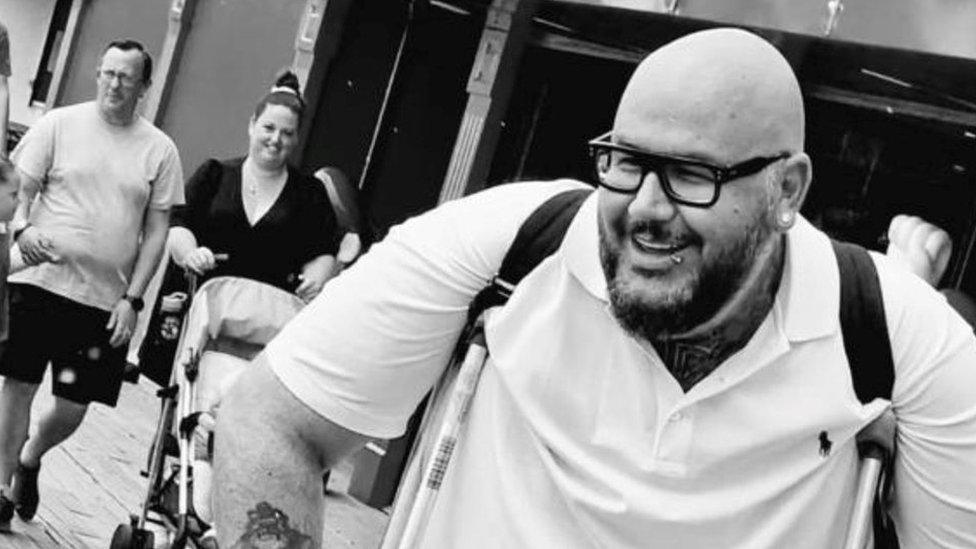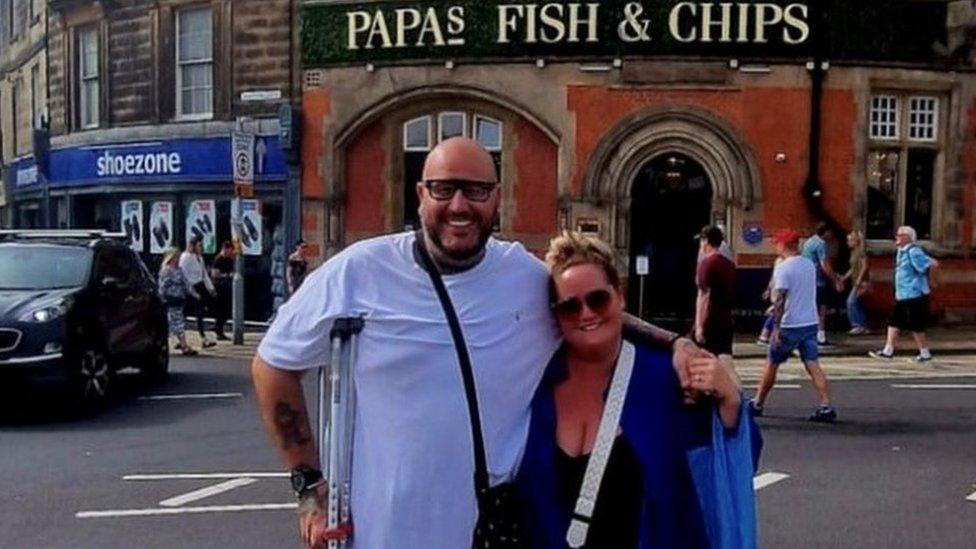Leicestershire man suffered severe spine damage after care delay
- Published

Massimo Mattera, 42, was diagnosed with cauda equina syndrome, a rare spinal condition
A man who suffers from a serious spinal condition said he could have avoided severe damage if he did not have a two-week delay in treatment.
Massimo Mattera, 42, went to A&E with back pain and numbness in October 2018.
He was suspected to have a rare nerve condition that affected his spine, but did not receive treatment until he was readmitted a fortnight later.
The University Hospitals of Leicester NHS Trust apologised for the "shortcomings in the care provided".
Mr Mattera, from Great Bowden, Leicestershire, was diagnosed with cauda equina syndrome, a rare condition where the nerves in the spinal cord are severely compressed, following an emergency MRI scan two weeks after suffering initial symptoms.
Symptoms for cauda equina syndrome include loss of sensation between the legs, bladder and bowel disturbance, back and lower limb pain, numbness and weakness.
The father of two initially went to his local A&E complaining of back pain and numbness in his legs on 21 October, 2018, before being transferred to Leicester Royal Infirmary (LRI) for an MRI scan.

Massimo lives with his wife Lisa Mattera-Darling, 36
He was told he would get results in four to six weeks before he was discharged.
However, two weeks later, Mr Mattera was readmitted and needed decompression surgery and a discectomy to remove a crushed vertebra.
"I'd had back pain in the past, but I knew something wasn't quite right when I developed numbness," he said.
"It was something I hadn't experienced before, however, when I was discharged home from Leicester, I trusted the professionals that there was nothing serious going on."
'Really upsetting'
Mr Mattera still suffers from leg and foot pain "constantly" and uses crutches to get around.
"I'm angry, I'm frustrated, I'm upset," he said.
"I've also put on a lot of weight which is really upsetting.
"It's awful to think that it could have been avoided had I been treated for cauda equina syndrome earlier."
Medical director at the hospital trust, Andrew Furlong, said: "I would like to apologise to Mr Mattera for the shortcomings in the care provided, and thank him for taking the time to share his experience of this rare and dangerous condition, which is challenging to diagnose and can have serious consequences for patients.
"We are pleased to be able to help support Mr Mattera in his ongoing therapy following successful surgery at Leicester Royal Infirmary in 2018."

Follow BBC East Midlands on Facebook, external, on X, external, or on Instagram, external. Send your story ideas to eastmidsnews@bbc.co.uk, external.